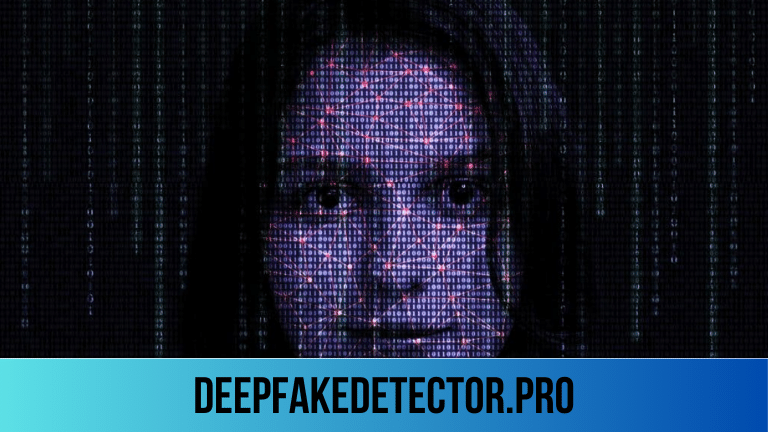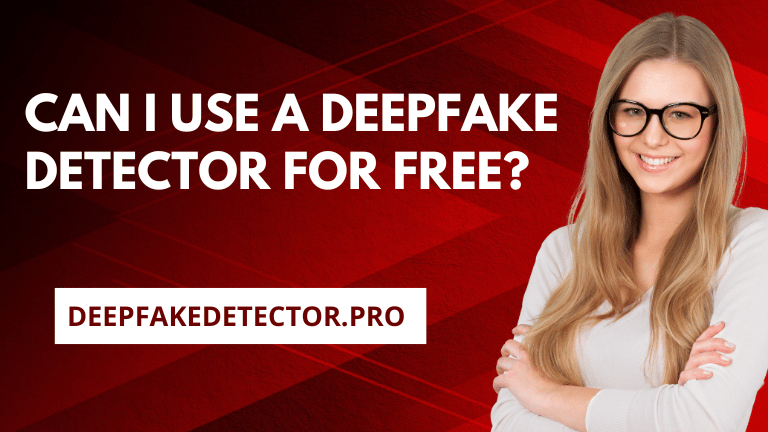Can I use a DeepFake detector for free?highly realistic synthetic media created using advanced AI techniques – has raised significant concerns about the potential for deception and the erosion of trust in digital content. As these AI-generated videos, images, and audio recordings become more sophisticated and indistinguishable from authentic media, the need for reliable deepfake detection tools has become paramount. However, many individuals and organizations may be deterred by the perceived costs associated with accessing these cutting-edge technologies. In this comprehensive guide, we’ll explore the availability of free deepfake detectors, their capabilities, limitations, and the various options available for those seeking to safeguard themselves against the spread of synthetic media without incurring substantial costs.
The Importance of Deepfake Detection
Before delving into the world of free deepfake detectors, it’s essential to understand the significance of this technology and the potential risks posed by the unchecked spread of deepfakes.
The Rise of Deepfakes and Their Implications
Deepfakes, created using advanced deep learning techniques like generative adversarial networks (GANs), have the ability to generate highly convincing synthetic media that can be difficult to distinguish from authentic content. These AI-generated videos, images, and audio recordings can be used for a variety of purposes, ranging from harmless entertainment to malicious deception and disinformation campaigns.
The implications of deepfakes extend far beyond the realm of individual privacy and reputational harm. Deepfakes have the potential to undermine trust in digital media, influence public opinion, and even impact elections or geopolitical events. As the technology continues to advance and become more accessible, the need for effective countermeasures has become increasingly urgent.
The Role of Deepfake Detection Tools
Deepfake detection tools leverage advanced machine learning algorithms and analytical techniques to identify subtle inconsistencies, artifacts, and patterns that can reveal whether a piece of media has been synthetically generated or manipulated. These tools can serve as a crucial line of defense against the spread of deepfakes, empowering individuals, organizations, and platforms to verify the authenticity of digital content and mitigate the potential risks associated with synthetic media.
While many commercial and proprietary deepfake detection solutions exist, the availability of free or open-source options can democratize access to this technology, enabling a broader range of users to safeguard themselves against the potential harms of deepfakes without incurring substantial costs.
Exploring Free Deepfake Detectors
In response to the growing demand for accessible deepfake detection tools, various organizations, research institutions, and tech companies have developed free or open-source solutions. These tools vary in their capabilities, underlying technologies, and ease of use, catering to different user needs and technical proficiencies.
Open-Source Projects and Research Initiatives
The open-source community has been at the forefront of developing freely available deepfake detection tools, driven by a commitment to transparency, collaboration, and the democratization of technology. Several notable open-source projects and research initiatives have emerged in this space:
- DeepFake Detection Challenge (DFDC): Organized by Amazon Web Services (AWS), the DFDC is an ongoing initiative that provides a large dataset of deepfake videos and encourages researchers and developers to create and share open-source detection models.
- FakeYou: Developed by researchers at the Fraunhofer Institute for Telecommunications, FakeYou is an open-source deepfake detection tool that leverages machine learning to analyze subtle inconsistencies in facial movements and expressions.
- DeeperForensics-1.0: Created by the Multimedia Signal Processing Group at the University of Erlangen-Nuremberg, DeeperForensics-1.0 is an open-source framework for detecting various types of media manipulations, including deepfakes.
- DeepFake Detection Kernel: Hosted on Kaggle, this open-source kernel provides a starting point for developers to experiment with deepfake detection techniques using convolutional neural networks (CNNs) and transfer learning.
These open-source initiatives not only provide free access to deepfake detection tools but also foster collaboration, knowledge sharing, and the advancement of the field through open research and development.
Free Online Deepfake Detectors
In addition to open-source projects, several web-based tools and platforms offer free deepfake detection services accessible through a simple online interface. These tools can be particularly useful for individuals or organizations with limited technical expertise or computational resources:
- Sensity AI: Developed by researchers at the Visual Computing Lab at the University of Southern California, Sensity AI is a free online tool that allows users to upload media files and receive a probability score indicating the likelihood that the content is synthetic or manipulated.
- Deepware AI: Deepware AI offers a free online deepfake detection service that analyzes uploaded media files and provides a detailed report on various manipulation indicators, such as face swaps, lip-syncing, and video interpolation.
- Deeptrace: Deeptrace is a free online platform that utilizes machine learning models to detect various types of media manipulations, including deepfakes, and provides a user-friendly interface for uploading and analyzing content.
- Amidor.AI: Amidor.AI is a free online tool that combines multiple deepfake detection algorithms to analyze uploaded media files and provide a comprehensive assessment of their authenticity.
While these free online tools may have limitations in terms of throughput, advanced features, or support, they can serve as valuable resources for individuals or organizations seeking accessible deepfake detection capabilities without incurring substantial costs.
Mobile Applications and Browser Extensions
In addition to web-based tools, several free mobile applications and browser extensions have been developed to provide convenient and on-the-go deepfake detection capabilities:
- DeepFake Scanner (iOS/Android): This free mobile app leverages machine learning models to analyze images and videos for signs of manipulation, providing users with a simple and intuitive interface for detecting deepfakes on their mobile devices.
- Fake Video Detector (Chrome Extension): This free browser extension for Google Chrome allows users to analyze videos directly within their web browser, providing a convenient way to detect deepfakes while browsing online content.
- DeepFake Video Detector (Firefox Add-on): Similar to the Chrome extension, this free add-on for Mozilla Firefox enables users to analyze videos for potential manipulation directly within their browser.
- DeepFake Detector (iOS/Android): Developed by Sensity AI, this free mobile app provides on-the-go deepfake detection capabilities, allowing users to capture or upload images and videos for analysis.
While these mobile applications and browser extensions may have limited functionality compared to more comprehensive deepfake detection tools, they offer a convenient and accessible means of verifying the authenticity of digital content on the go.
Considerations and Limitations of Free Deepfake Detectors
While the availability of free deepfake detectors is a significant step toward democratizing access to this crucial technology, it’s important to understand the potential limitations and considerations associated with these tools.
Performance and Accuracy Limitations
Many free deepfake detectors are developed by research institutions, open-source communities, or smaller organizations with limited resources. As a result, their performance and accuracy may not match that of commercial or enterprise-grade solutions developed by well-funded technology companies with access to larger datasets and more powerful computational resources.
It’s essential to carefully evaluate the performance and accuracy claims of free deepfake detectors and consider independent third-party evaluations or benchmarks to understand their limitations and potential for false positives or false negatives.
Limited Support and Updates
Free deepfake detection tools are often maintained by volunteer contributors or research teams with limited resources. As a result, these tools may not receive regular updates, bug fixes, or support to address emerging deepfake techniques or vulnerabilities.
This lack of consistent support and maintenance can potentially lead to degraded performance over time as deepfake technologies continue to evolve, making it crucial to regularly assess the effectiveness of free tools and consider upgrading to more actively maintained solutions as needed.
Restricted Functionality and Scalability
Many free deepfake detectors are designed for individual or small-scale use and may lack advanced features or capabilities found in commercial solutions. Limitations in terms of batch processing, integration with existing workflows, or scalability to handle large volumes of media may make free tools less suitable for enterprise-level or high-throughput applications.
Organizations or individuals with more demanding requirements may need to consider paid or commercial deepfake detection solutions that offer more robust functionality, scalability, and integration capabilities.
Privacy and Security Considerations
When using free deepfake detection tools, it’s important to consider the privacy and security implications of uploading or sharing potentially sensitive media content with third-party platforms or services. While many free tools are developed by reputable organizations or research institutions, it’s crucial to review their privacy policies, data handling practices.

FAQs
Are there any free DeepFake detectors available online?
Yes, there are several free DeepFake detectors available online. Platforms like deepware.ai offer free online detection services that allow users to upload media files and analyze them for signs of manipulation.
How do I access free DeepFake detection tools?
Free DeepFake detection tools can be accessed through various websites and platforms that offer these services. Users typically need to upload the media they want to analyze and wait for the tool to process and provide results. Some popular platforms include deepware.ai and the open-source DeepFaceLab.
What are the limitations of using free DeepFake detectors?
Free DeepFake detectors might have limitations such as lower accuracy compared to premium tools, restrictions on the file size or number of analyses, and longer processing times. Additionally, free tools may lack advanced features available in paid versions.
Can I use a free DeepFake detector for commercial purposes?
The usage terms for free DeepFake detectors vary by provider. Some free tools are available for personal use only and may require a paid subscription for commercial use. It is important to check the terms of service or licensing agreement of the specific tool you are using.
Are there any open-source DeepFake detectors that I can use for free?
Yes, there are open-source DeepFake detectors available for free. Projects like DeepFaceLab and FaceForensics++ offer open-source tools that can be downloaded, modified, and used without cost. These tools are often used by researchers and developers to build and improve upon DeepFake detection technologies.

